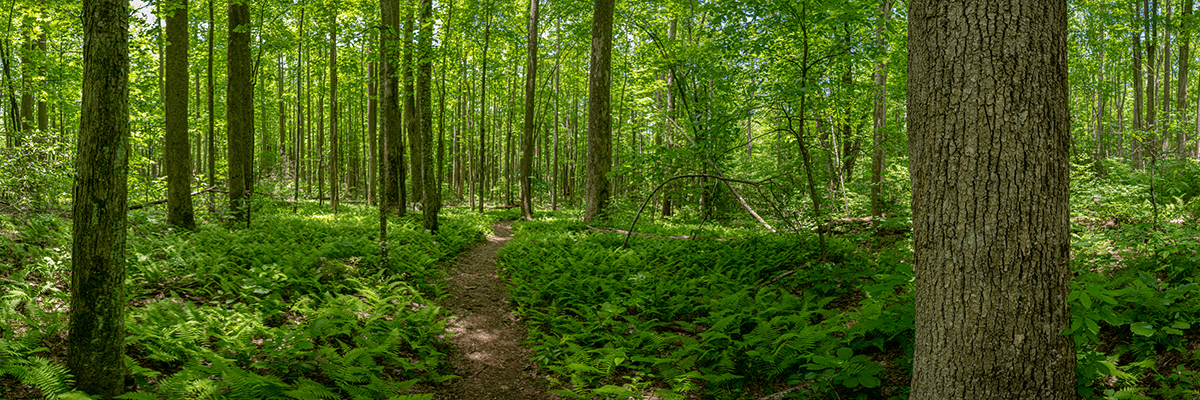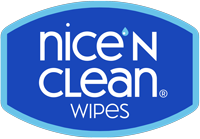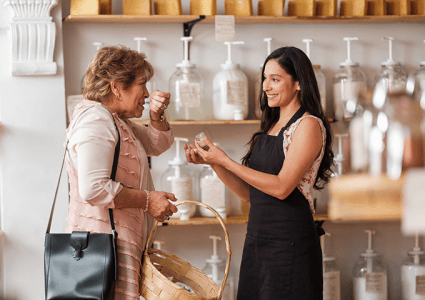Sustainable Products: What to Look for When Shopping

Sustainable products continue to grow in popularity as more and more people understand the importance of protecting our environment and protecting it for future generations. Due to consumer demand — and because it’s the right thing to do — companies are investing in sustainability. In addition to producing sustainable products, companies are also reviewing the entire product life cycle, including raw material sourcing, supply chain, manufacturing process, packaging, and disposal.
What is sustainable shopping?
Shopping sustainably reflects a consumer’s recognition that everything purchased or consumed has an impact on their health, environment, and society. Sustainable shoppers use their purchasing power to support companies that align with their beliefs, and avoid buying products and services that don’t. Supporting sustainable companies is better for the health of our environment as well as our personal health.
What are sustainable products?
First, let’s look at the definition of “sustainable.” According to Merriam-Webster, the most relevant definition to this article is “of, relating to, or being a method of harvesting or using a resource so that the resource is not depleted or permanently damaged.”
In short, sustainable products are produced or consumed in a way that doesn’t cause harm to the environment or to individuals. Anything that damages the planet or causes harm to society (including individuals) is not considered sustainable.
What makes a product sustainable?
People and companies can define “sustainable” differently and the range of standards can vary. Generally speaking, a product is considered sustainable if it has the following attributes:
-
It’s made from renewable resources. For example, Nice ’N CLEAN® Wipes are made from renewable plant-based fibers from trees in environmentally managed forests.
-
It minimizes impact on the environment. It’s nearly impossible for an action not to have some sort of environmental impact, but sustainable products never directly harm the planet. Sustainable companies focus on efforts to minimize any negative impacts. Examples include reducing usage of energy and water, sourcing renewable materials, and planting trees.
-
It’s produced in a socially responsible way. Being socially sustainable means the company practices diverse and inclusive hiring, offers fair wages and benefits, provides a safe and secure working environment, and cares about the health and well-being of their employees, as well as the communities in which they operate.
What should I look for when shopping sustainably?
Consumers have access to lots of information on the internet. With a click of a button, you can research companies and their products. Virtually all company websites have an “about us” section where consumers can learn about the mission and the founder(s) or executive leadership team.
Before supporting a new brand, consider researching the following online:
-
Company mission and leadership: What is the company’s mission? Does their leadership team support sustainability?
-
Sustainability commitment: Does the company have a section dedicated to sustainability? Does the company provide a regular sustainability report? Is the company transparent about its sustainability initiatives and the progress of each one?
-
Manufacturing process: Does the company continually seek to improve their manufacturing process to reduce water and energy usage and to minimize waste? Does the company share what progress has been made over the years?
-
Materials used and where they’re sourced: Does the company source natural and raw materials that are renewable?
-
Community support: How does the company support the local communities in which they operate? How does the company treat its employees?
An example of commitment and community support is Nice-Pak joining forces with American Forests and Project Learning Tree, the Sustainable Forestry Initiative’s flagship education program. As a sustainable brand owned by Nice-Pak, Nice ’N CLEAN® Wipes is committed to driving awareness and supporting educational efforts to enhance knowledge and appreciation for the critical role trees play in protecting the planet for our future generations.
As part of the multi-year sponsorship, Nice-Pak will work with American Forests to plant 150,000 trees across the U.S. over three years and support Project Learning Tree’s digital curriculum. The education campaign is expected to reach 25,000 K-12 students over the next three years.
READ: Nice 'N CLEAN's Sustainability Commitment
Before purchasing a product, check the packaging or label for information that indicates how sustainable it is. Here are examples of features that reflect a product was sustainably made:
-
100% biodegradable (check out Nice ’N CLEAN® SecureFLUSH™ Technology Flushable Wipes!)
-
100% compostable
-
Made from renewable materials
-
Made from recyclable materials
-
Manufactured using ethically sourced labor
CHECK IT OUT: 100% Biodegradable Flushable Wipes
The good news is that more and more companies and shoppers are understanding the importance of protecting our planet. The levels of sustainability varies from company to company and product to product, so it’s important to understand what you’re buying in order to better support your health and our environment.
References:
- https://www.sustainability.vic.gov.au/recycling-and-reducing-waste/at-home/avoid-waste/shop-sustainably
- https://www.merriam-webster.com/dictionary/sustainable
- https://earth911.com/business-policy/what-makes-a-product-sustainable/
- https://www.einnews.com/pr_news/558320098/nice-pak-american-forests-and-project-learning-tree-join-forces-in-reforestation-and-youth-education-efforts




